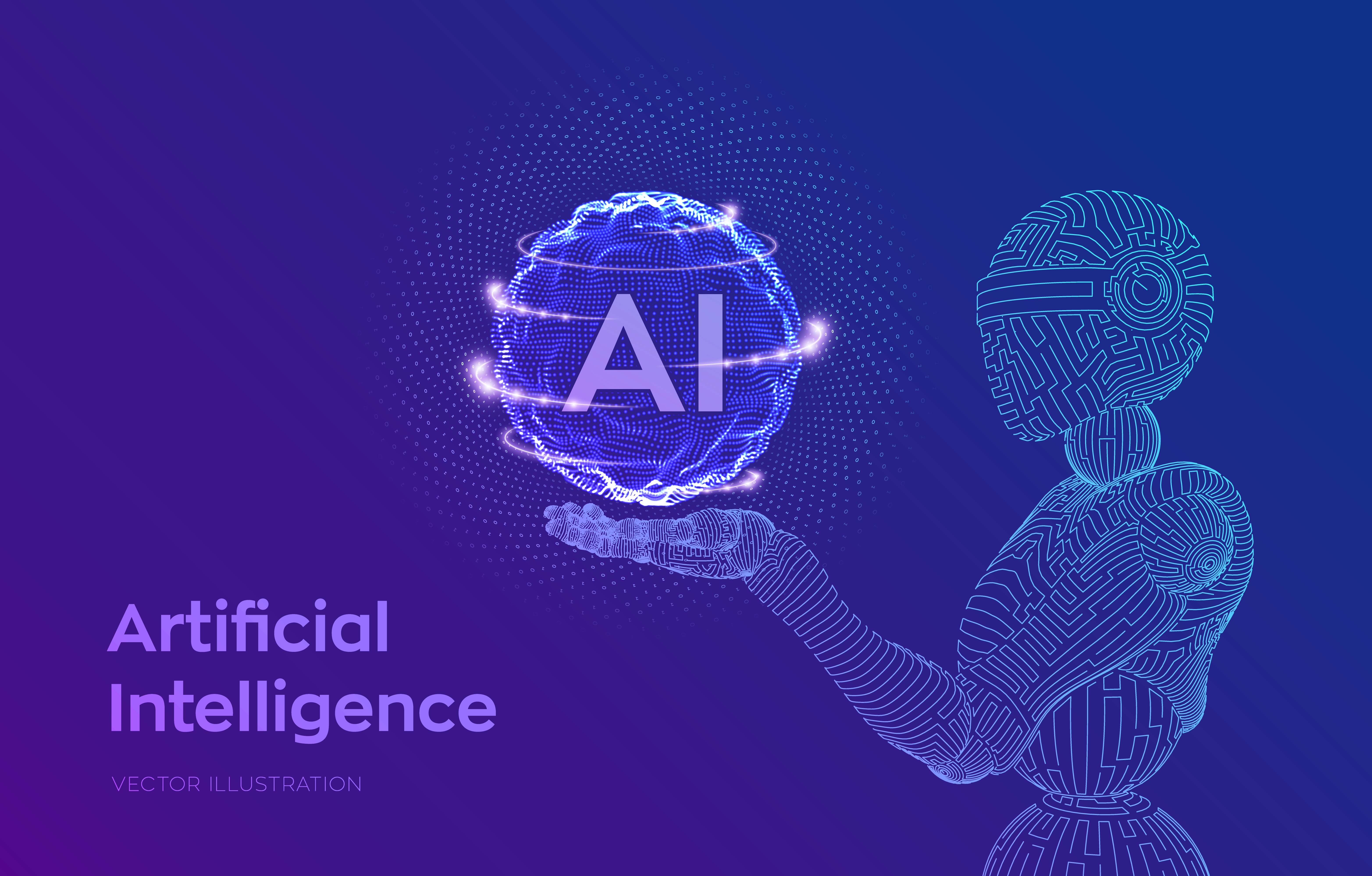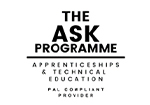Navigating the ever-evolving world of work requires an adaptable mindset and the openness to up-skill through continuous learning. The landscape of work can seem like a minefield if you do not have the skills and know-how to navigate your way and while the integration of Artificial Intelligence is at the forefront of new developments it is also important to remember that there is still very much a need for the human factor in the workplace of tomorrow.
In this blog we take a look at how the work environment is changing, how young people can adapt and also how apprenticeships are providing a pathway to gain the qualifications, skills and experience needed for a dynamic job market.
Increased remote working
The COVID-19 pandemic accelerated the adoption of remote work, transforming it from a temporary necessity to a long-term reality for many organisations. As we move forward, the ability to work remotely will continue to be a crucial aspect of the future of work. Young people will need to demonstrate flexibility to work in this way, using online cloud systems and collaboration tools with co-workers. Some will enjoy the benefits of flexible work hours and the freedom to work from anywhere, but for others the shift may mean increased isolation and fewer opportunities to learn ‘first hand’ from more experienced colleagues.
Greater emphasis on well-being at work
The COVID-19 pandemic also highlighted the importance of maintaining good mental health, not only for performance at work but also for general wellbeing. Organisations are now increasingly implementing wellness programmes to promote a healthy work-life balance and fostering a supportive work environment where social interaction between employees is seen as important. Future work practices are expected to continue in this vein to prioritise physical, mental, and emotional well-being.
Keeping up with changes and making career decisions
As much as anyone, young people need to keep up with the changes happening in the workplace, especially when making their own career choices.
We have identified a few publications that provide some useful insights:
-
The Future of Jobs Report 2023 by the World Economic Forum looks at jobs and skills in the next five years and how socio-economic and technological trends will shape the future workplace.
-
Management consultancy organisation, McKinsey, offers some further future predictions in What is the Future of Work? estimating that by 2030 one in 16 workers will switch occupations and that most job growth will be in high-skill fields.
-
In Jobs of the Future, Universities UK predicts that 88% of new jobs in 2035 will be at graduate level, with the highest demand in Computing, Engineering, Health, Education and Creative sectors.
Up-skilling to meet demand
As well as keeping pace with the latest developments in various sectors, young people will need the skills to succeed in them. Online courses and workshops can offer a great way for young people to acquire new marketable skills. Codecademy offers free online lessons in a range of coding languages with certification upon completion. Coding will continue to be a highly valued skill for STEM careers, web development, marketing and content creation across a range of industries. Even just completing the beginners course can elevate a CV to prospective employers. FutureLearn and The Open University offer a range of courses in areas such as business management, Law, Film and TV, and STEM. For those looking to break into the Film and TV industry, ScreenSkills offers free e-learning opportunities along with apprenticeships, bursaries and mentorship programmes.

Image by Freepik
How to compete with AI
While the development of AI has meant that repetitive tasks are increasingly being handled by machines, AI is also freeing people to focus on tasks that require the human touch including creativity, emotional intelligence and critical thinking, so young people could think about how to develop their abilities in these areas. Jobs that utilise these skills are likely to become more prevalent which means that expanding these skills will make you a more attractive prospect over the efficiency of AI.
While many people fear that AI will replace human workers, it is more accurate to think of AI as a collaborator. Intelligent systems will enhance human productivity and assist in decision-making processes. For example, AI algorithms can analyse vast datasets at speeds beyond human capacity, providing valuable insights that can inform strategic business decisions with enormous benefits.
Further impacts of AI on work and job roles
AI has resulted in an increase in remote working and job flexibility. AI-powered tools and platforms enable seamless communication, collaboration and project management across distances, meaning that companies are less constrained by physical premises. The development and maintenance of AI systems has also created new jobs in engineering, data science and AI ethics. Additionally, industries such as healthcare, finance, and manufacturing are undergoing transformation as they integrate AI into their processes, creating new roles and skill requirements.
How apprenticeships are providing skills for future roles
Routes into the working world have evolved alongside changes in workplace. Notably, apprenticeships have changed significantly in recent years and now offer new paths to well-paid careers.
Apprentices are well placed to gain the latest and most relevant skills demanded by their respective career sectors. As technology and industries evolve, apprenticeships are often quickly adapted and apprentices benefit by receiving specific skills development based on the demands of their chosen field and from tailored training programmes. This is because the employers own the content of the apprenticeship programmes and will tailor them to meet the rapidly changing demands of their particular marketplace or sector.
Many professional-level careers are now becoming more accessible through higher and degree level apprenticeships and with real world experience incorporated alongside theoretical learning, apprentices are among the most well equipped to get ahead.
There is a greater availability of opportunities than ever before. Apprenticeship opportunities span various sectors and are combating skills shortages in computing, digital industries, engineering and healthcare sectors. Non-technical apprenticeships have become increasingly accessible particularly in fields like marketing, content management, social media, investment banking and financial advice. Additionally, there are growing opportunities in the medical and care professions, covering roles in nursing, healthcare, and mental health. Traditional pathways also remain robust in trade professions such as plumbing, carpentry, and construction providing entry to well-paid and skilled work in these areas.
To find out more about the careers that can be accessed through an apprenticeship and the different apprenticeship levels visit:
Final thoughts…
To succeed in the dynamic and evolving world of work young people need to be adaptable and well-informed about emerging career paths, as well as open to gaining new skills. Against this backdrop, apprenticeships are offering alternative routes to well-paid careers and are particularly valuable for providing real-world experience to help prepare young people for future changes in the professional landscape. When weighing up career options, we would encourage young people to take a look at any relevant apprenticeships and give them some real consideration. They could be a strategic investment for the future.



 0330 311 9509
0330 311 9509 




 0330 311 9509
0330 311 9509









